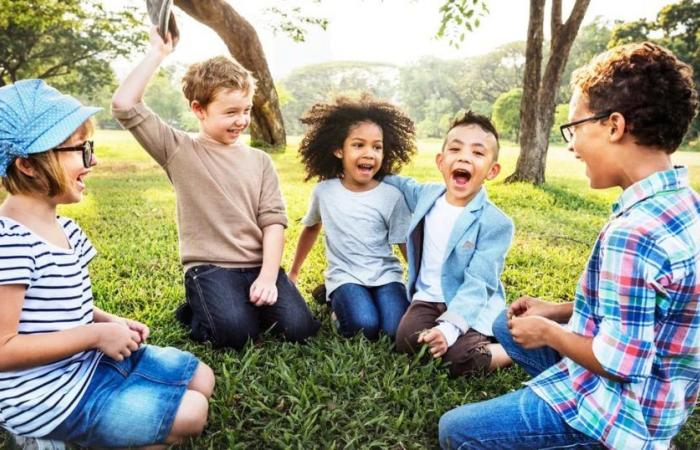Every year, in Argentina, Children’s Day becomes a day of joy where the little ones are the protagonists. This date, awaited by children and adults, unites families and communities around recreational and educational activities.
Children’s Day is celebrated in Argentina on August 18th, a date dedicated to honoring and valuing the little ones in the home. This celebration, established by the United Nations General Assembly in 1954 like Universal Children’s Day, it adapts to national calendars.
In Argentina, the day is lived with recreational activities, gifts and special events for children. Families often participate in meetings and celebrations organized by educational institutions as well as government and private entities. The celebration seeks to promote the well-being and rights of children, as well as strengthen family and community ties.
Children’s Day is a celebration with great tradition in Argentina, officially established in 1958 by Argentine Chamber of the Toy Industry. This commemoration aims to promote the rights and welfare of children in the country. The Argentine initiative was established several years after the recommendation of the United Nations (UN) to dedicate a special date to celebrate and protect children.
In 1960, the UN issued a global call for each country to select a specific date dedicated to child well-being. In response to this recommendation, Argentina adopted the tradition of commemorating a day dedicated to highlighting the importance of childhood starting that year on every third Sunday in August.
The United Nations Organization (UN) commemorates every year the World Children’s Day he November 20. This date commemorates the approval of the Declaration of the rights of the child by the UN General Assembly in 1959. Although this declaration was not binding, it established an important precedent in the protection of the rights of minors.
November 20 also marks the adoption of the Children’s rights convention in 1989, after a decade of negotiations between governments, religious leaders, non-governmental organizations and other institutions. Unlike the 1959 Declaration, the Convention is an international treaty binding on signatory countries.
The purpose of World Children’s Day is to raise awareness in society about the vulnerable situation of children and to highlight that they are the ones who suffer the most in times of crisis and global conflicts.
At the regional level, each country celebrates Children’s Day on different dates. In Latin America, Colombia celebrates it on the last Saturday of April, while in Mexico It is celebrated on April 30. In Venezuela, The commemoration is on the third Sunday of June and on Uruguay andl August 9. Likewise, in Paraguay It is celebrated on May 31, in Brazil October 8 and so much Chili as Argentina They celebrate it on the third Sunday in August.
In Europe, Spain celebrate Children’s Day on April 15 and Türkiye on the 23rd of the same month. These various dates reflect the commitment of local laws and traditions around the protection and well-being of children.
The rights of minors are guaranteed by the Convention on the Rights of the Child, adopted by the United Nations General Assembly on November 20, 1989. This international treaty establishes that all children and adolescents under 18 years of age must enjoy rights without distinction by race, color, language, birth or any other condition, whether of the child or his or her parents or legal representatives.
Among the rights provided for in the convention are several fundamental for the well-being of children. Minors have the right to receive care and protection, to have a name and nationality, and express their opinions and feelings openly.
The convention also underlines the obligation of States to ensure the survival and the development of the child to the maximum extent possible. This includes protecting their intrinsic right to life and its harmonious development. States must respect the right of the minor to preserve his identity, including nationality, name and family relationships, in accordance with the law and without unlawful interference.
The child is also guaranteed the right to a proper education and mandatory, which must be accessible to all minors. Likewise, the right to a dignified life and leisure is recognized, promoting that children can play and have fun in a safe and happy environment. It is crucial that when they are sick, children receive medical attention necessary without any discrimination.
In exceptional situations, such as the separation of parents, such action can only be carried out in accordance with the law and with the corresponding judicial review, which always ensures the best interests of the child. This principle is essential to avoid abuse and ensure that any separation is justified and carried out in a legal and transparent manner.
The established rights not only include physical and legal aspects, but also the protection of the child’s identity. It guarantees the right to freedom of expression, which includes freedom to seek, receive and impart information and ideas regardless of frontiers. This may be done in a variety of ways, including orally, in writing, in the arts or through any other medium chosen by the child.
The importance of the family in the development of the child is also highlighted in the convention. It recognizes the family as the fundamental nucleus of society, which provides the natural environment for the growth and well-being of all its members and, in particular, children. Therefore, families must receive the necessary protection and assistance to fulfill their functions fully and effectively.
The convention also refers to previous documents that underline the need for special protection for children, such as Geneva Declaration of 1924 on the Rights of the Child and the Universal Declaration of Human Rights. These international declarations and covenants have repeatedly stated that children need special care and assistance.






